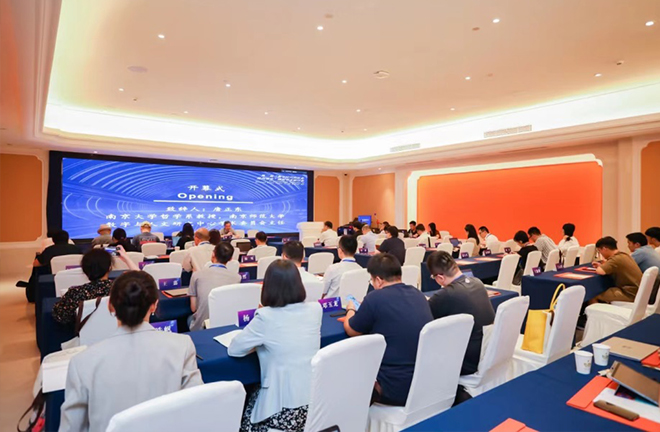New social theories needed for digital era

A seminar on social theories in Nanjing, Jiangsu Province Photo: NJNU
In late June, a seminar on the relationship between technology and society in the digital age was held in Nanjing, Jiangsu Province. Attendees offered insights into the criticism of digital capitalism from the perspective of historical materialism, as well as societal reconstruction in the context of digital intelligent technology.
Theoretical criticism
Discussing the critique of digital capitalism from the perspective of historical materialism, Tang Zhengdong, a professor from the Department of Philosophy and Religious Studies at Nanjing University, called for more attention to the digital or information analysis theory, the relationship between data and production factors, research paradigms of digital capitalism and the definition of research objects, as well as the theoretical effects of data. Unraveling the operational logic of the digital economy hinges on advancing critical research into digital capital, the digital economy, and digital capitalism.
Wu Jing, a professor from the School of Public Administration at Nanjing Normal University (NJNU), suggests that philosophical critiques in the digital age should expand to include new research objects, including the interactions between technology and individuals, technology and society, technology’s reconstruction of people and society, as well as the new challenges posed by technology to social organizational relations, labor relations, emotions, ethics, and family relations, demonstrating the latest changes in human society and philosophy and social sciences in the digital era.
New human-machine relations
With the rapid iteration of big data, artificial intelligence, cloud computing, and other technologies, the role of technology in human existence has transitioned from being auxiliary prosthetic tools to becoming dominant technological bodies. Similarly, the role of humanity in relation to technology has evolved from being the dominant force in technological advancement to becoming integrators characterized by mutual embedding and human-machine symbiosis. This bilateral relationship has evolved into a state of digital “Bestand.”
Wang Tian’en, a professor from the School of Marxism at Shanghai University, emphasized that critical research in the digital age must delve deep into the layers of information ecosystems to facilitate the rational allocation of knowledge-producing products, dismantle information cocoons, and promote introspection within the digital intelligence environment.
Duan Weiwen, a research fellow from the Institute of Philosophy at the Chinese Academy of Social Sciences, believes that the human-like language and creativity demonstrated by generative artificial intelligence have had a profound impact on human intelligence. However, the development of artificial intelligence is inevitably grounded in technological realities and environments. More noteworthy than super intelligence and survival risk is the possibility of general artificial intelligence being unlocked by generative artificial intelligence and the future direction of human intelligence.
Digital justice
Digital society is rife with issues such as the digital divide, data silence, and developmental imbalances, Wu continued. How to appropriately use massive amounts of data to ensure the reasonableness of training data sets is an issue requiring continuous scrutiny.
Xu Qiang, a professor from the School of Public Administration at NJNU, warns that while everyone has the right to self-expression in online public spaces, cyberbullying can emerge as a consequence. Addressing cyberbullying is a component of social governance, with the goal of ensuring that technological development aligns with human values while avoiding infringements on individual freedoms and stifling social vitality.
With the continuous advancement of digitalization across various sectors, digital labor, a new form of work, has rapidly become a topic of extensive concern in academic circles. In the opinion of Xie Yazhou, a professor from the School of Marxism at Lanzhou University, while the rise of digital labor further underscores the importance of the concept of “immaterial labor,” Marx’s labor theory of value fundamentally exposes the financial basis of capitalist temporal dominance, serving as a powerful ideological weapon to debunk the “sorcery” of capitalism.
According to Julio Huato, a professor of economics at St. Francis College in the United States, the analysis of digital technology from the perspective of political economy reveals that the rapid development and widespread use of digital machines have revolutionized the modes and scales of labor cooperation in social reproduction.
Yan Kunru, a professor from the School of Philosophy and Social Development at South China Normal University, stressed the necessity of investigating digital labor justice, the challenges of capital justice to digital labor justice, the dilemma of digital labor justice and its deep roots, and surpassing capital justice with labor justice, with the aim of realizing the fundamental value of digital labor for human liberation and a return to the values of digital labor justice.
Edited by YANG LANLAN

 PRINT
PRINT CLOSE
CLOSE